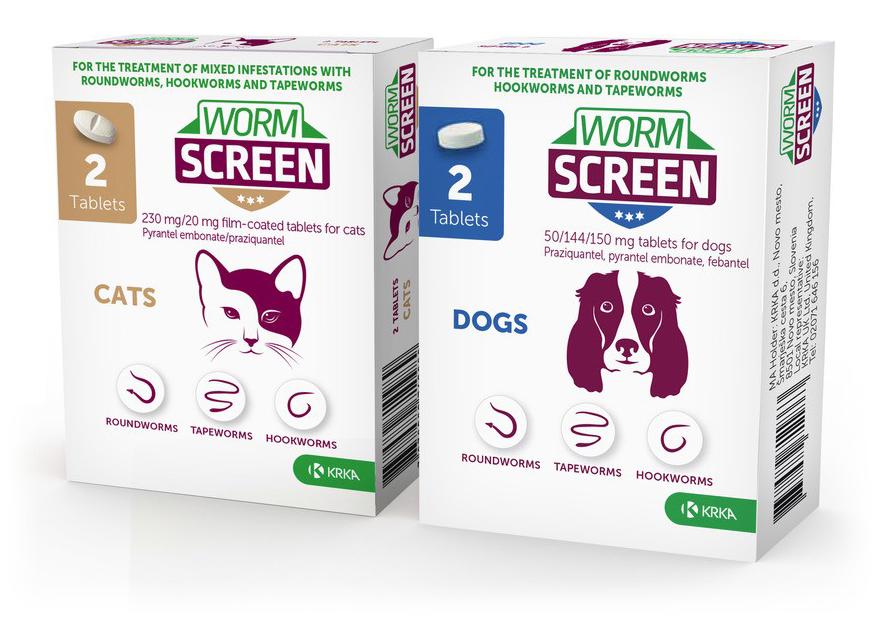Roundworms.
Treatment of roundworms in dogs and cats.
Worming puppies & kittens.
It’s really important to regularly deworm puppies and kittens, especially if they are allowed to play with children because they carry a roundworm species called Toxocara which can infect humans.
The Toxocara larvae migrate to the mammary glands of the dam and pass to the pup or kitten through the milk whilst feeding, however puppies can also be infected in utero as the larvae can cross the placenta in dogs. After ingesting, the larvae will eventually develop to form the adult worms in the small intestine where they will begin to produce eggs and these will be passed out of the animal in its faeces.
Toxocara eggs can survive for years!
Surprisingly, freshly produced faeces are not infective as it will take several weeks for the Toxocara eggs to become embryonated and infectious. If swallowed directly or indirectly either by your pet or accidentally by a human, the life cycle will be completed. Toxocara eggs are very resistant and able to survive in the environment for years which is why good hygiene is recommended for effective control.
Puppies should be wormed every 2 weeks from 2 weeks of age until 2 weeks after weaning, which is typically about 10 weeks of age. After this period, worming should be continued monthly until 6 months of age. The same regime can be applied to kittens except that worming can begin a little later at 3 weeks old because, unlike puppies, they will not be infected before birth.
Worming adult dogs and cats.
It is generally recommended that pets should be wormed every 3 months from 6 months of age however because of the serious zoonotic potential of Toxocara, it is suggested that families with young children should worm their pet monthly with a veterinary licensed product such as WORM SCREEN.
PROTECT my pet


